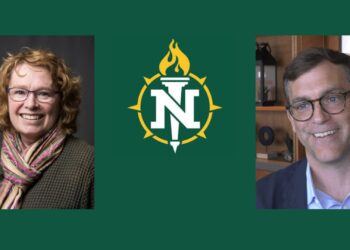Lansing, Mich. (WZMQ) – The Veteran Health Administration’s Undersecretary, Dr. Shareef Elnahal, held a media roundtable this week. He discussed the VHA’s top priorities and goals. The utmost top priority, according to the Undersecretary, is hiring faster and more competitively for key positions within the VHA.
The Undersecretary was happy to report that the VHA is well on its way to meeting its goals when it comes to hiring. He says nationally, we are now at about 388,000 total employees, which is up from 380,000 at the beginning of the fiscal year. The Undersecretary stressed that retention of these key jobs, especially when it comes to the nursing workforce, is a leading priority.
The Undersecretary explained that even though numbers are up, the VHA is reaching for more growth by hiring an additional 52,000 new hires, approximately. He says the number could be slightly lower if the VHA is able to keep up with its retention goals as it has in the first quarter.
The Undersecretary points out that 30,000 of those hires should be in what he calls “the big seven occupations” – physicians, nurses, housekeeping aides, medical support assistants, nursing assistants, licensed practical nurses, and food service workers within the VHA because “they keep our clinics and hospitals moving on behalf of veterans,” Dr. Elnahal stated.
In addition to improving the percentage of proactive recruitment positions, the Undersecretary pointed out that the removal of restrictions on hiring housekeeping aides, and expediting the hiring process of college graduates and post-secondary students. He says the VHA has raised the limits for Student Loan Repayments as it relates to this priority.
The Undersecretary deemed the PACT Act, passed by Congress and signed by the President last year, an obvious “historic piece of legislation”, as it is intended to significantly improve healthcare access for our veterans who may have been exposed to toxics during their service.
The Undersecretary reported that as of this past Friday, 1.98 million veterans have been screened in our clinics nationwide, and we are expected to break the 2 million mark for screenings this week. The Undersecretary reported that there are close to 3 million veterans who are enrolled but not seeking care through the VHA on a regular basis, and there is outreach across the country to get these veterans screened. He also reported that around 40% of veterans endorse they’ve been exposed to a toxin sometime during their service.
Patient safety is another priority, and the Undersecretary noted that a recent study in the New England Journal of Medicine showed that 1 in 4 patients who were admitted to hospitals in the U.S. experienced harm. “Patient safety cannot be an area where we lose our eye on the ball, and that speaks to our priority around accelerating our journey to being a high reliability organization,” Dr. Elnahal remarked.
The Undersecretary said that it remains imperative that frontline employees have a voice in veteran care regardless of whether they have formal training degrees or licensure, and that frontline employees should be empowered to speak up if something is not right.
The Undersecretary was happy to share that when it comes to this, numbers have gone up since 2019 for frontline employees feeling comfortable speaking up, based on an all-employee survey.
The VHA has recently given 30 million dollars in grant funding for organizations to help formerly homeless veterans maintain their stability, and the Undersecretary commended the Homelessness Programs Office for their efforts.
The Undersecretary touched on priorities as it relates to veteran suicide prevention. The VHA has recently announced winners of a competition called Mission Daybreak, where the VHA invited, for the first time, outside groups – including startups and non-profits to apply for funding to creatively address these issues. He says that one organization among the winners will benefit American Indian and Alaskan Native veterans, which he reported has the highest suicide rate. He reported that the VHA ended up giving out $20 million to these groups to address veteran suicide.
A Michigan hospital that has recently delayed its opening to later this year or early 2024 was up for discussion with the Undersecretary, who said that the delay related directly to functionality with an electronic health record platform, Cerner, around clinical research on behalf of our veterans. The Undersecretary’s priority with this is to ensure that research institutions and medical centers have strong academic relationships on behalf of medical research.
“We want our faculty to remain at VA, and to be able to pursue not only clinical care but a major part of their careers, which is research, and that research, by the way, is very veteran-centric. That helps veterans by definition,” the Undersecretary remarked. He added that the VHA is working with Oracle Cerner to correct this so that facilities like Ann Arbor will be able to deploy the system safely and effectively. The Undersecretary said that the VHA is looking at the full deployment schedule, and once finalized, it will be released to Congress, and to the public.
Lastly, the Undersecretary touched on issues regarding sexual assault in this country, specifically military sexual trauma among our veterans.
According to the Undersecretary, “The Secretary takes this as an extremely important priority and has collaborated with the Department of Defense on this to be able to address it comprehensively as a public health issue, and as an urgent one”
Dr. Elnahal reported that currently all new appointees take the White Ribbon Pledge in addition to the Oath on the Constitution. The Undersecretary wants to set the tone for proactive reporting of sexual assault and sexual harassment. He added that we have trauma coordinators and facilities across the country, and that the VHA is making sure duties are made clear and standardized to ensure reliable reporting about what the local concerns are. The Undersecretary says that data that is still being developed currently for more accurate reporting on sexual assault and military sexual trauma care.















